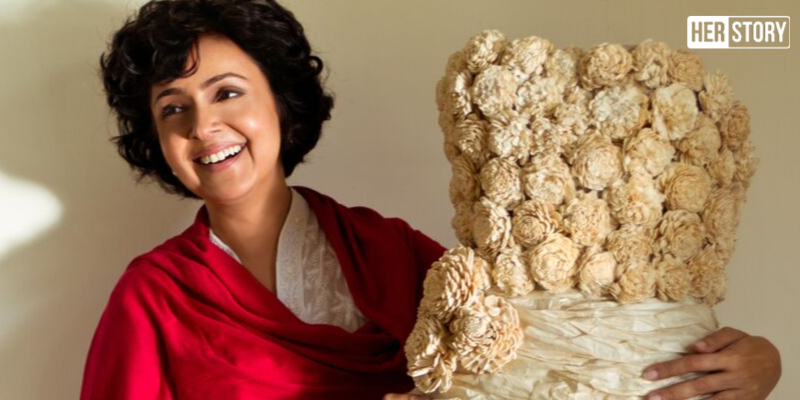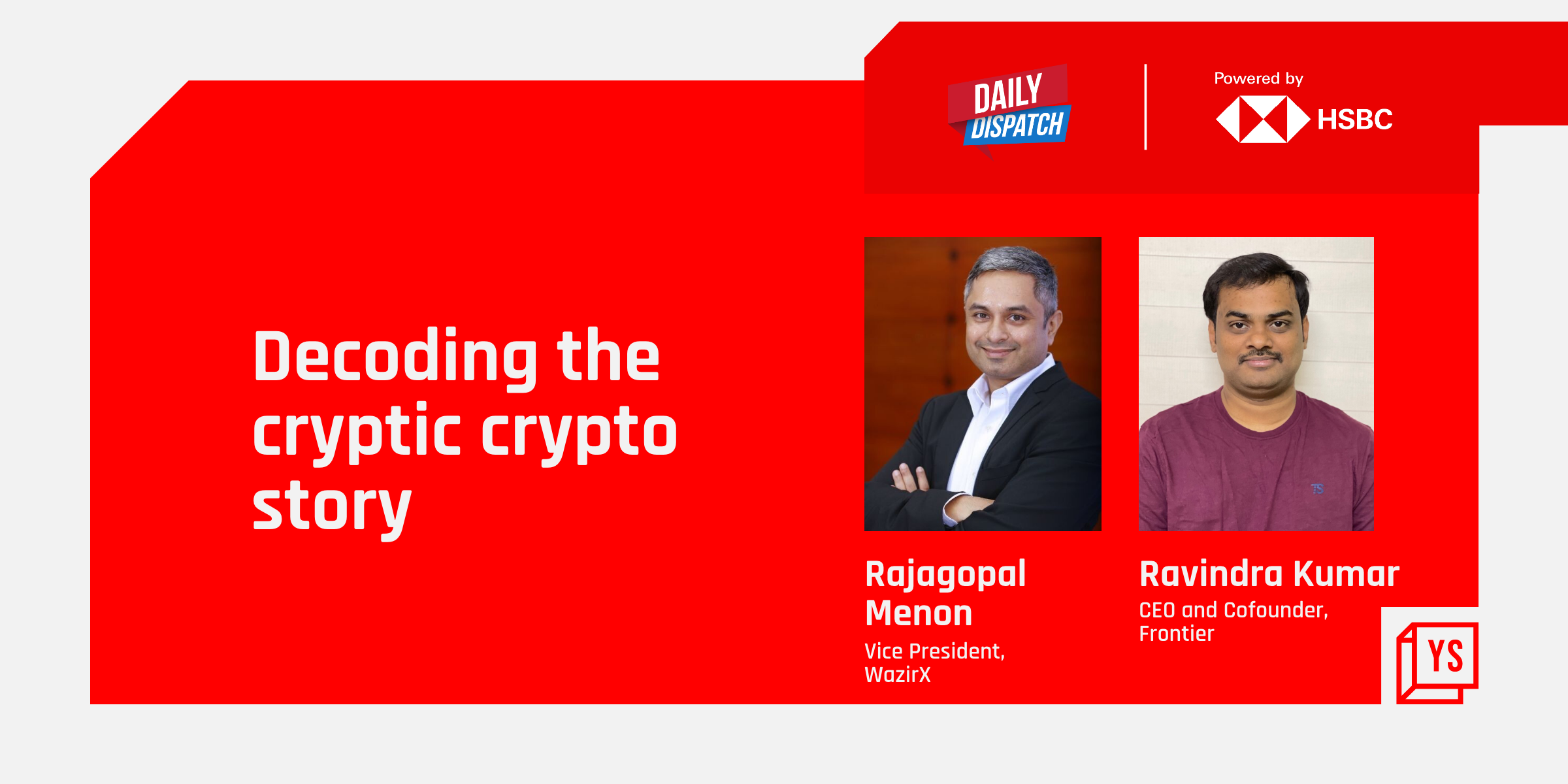Meet the fashion designer who has dressed celebrities like Priyanka Chopra, Saina Nehwal, and Victoria Beckham over the past 25 years
Designer Payal Jain has been at the forefront of the fashion evolution in India for the past 25 years, working with Indian textiles to create a brand ethos that she calls a 'western body with an Indian soul'.
Fashion designer Payal Jain has been leading the wave of homegrown fashion designers for the past 25 years.
It’s an incredible achievement to have witnessed the rapidly evolving fashion scene in India that has taken Indian tradition and couture to the world.

She has also seen designers fight the “glorified tailor” tag to make a name in India and the world, and become fashion icons themselves. Hers is a story of both inspiration and aspiration – working with an endless legacy of Indian textiles and karigari (craft), to create a brand ethos that she calls “a western body with an Indian soul”.
Payal was raised in New Delhi amidst art, culture, and music, and always knew she would be a part of the creative fields.
While pursuing a Bachelor’s in Commerce at Jesus and Mary College, she worked at an export factory during summer to try and get some understanding of the real business.
“I also started exploring fashion colleges in the US, and enrolled at FIDM San Francisco for a course in Fashion Design. After completing the course, I returned to India to an industry which was in its nascent stages where nobody understood the very specialised skill and education required to pursue a career in fashion. I was greatly influenced by the works of great couturiers like Madeleine Vionnet, Paul Poiret, and Coco Chanel,” she says.
Indian at heart
Payal started her Design Studio in Hauz Khas village, Delhi, creating western outfits with very traditional vibes. It was not an easy beginning.
“There was negligible appreciation for a western way of dressing, even by working and career-oriented women at that time. Everyone wanted Indian wear back in those days, and people were willing to spend lakhs on them, but refused to pay even Rs 2,000 for a well-tailored and immaculately structured business suit. Fashion designers were treated as glorified tailors, very unlike the fan following they command today!”
But a revolution was waiting to happen, and Payal was happy to be a part of it. “Most of my collections over the years speak of art forms, artists, music, and architecture as inspirations. They continue to inspire my designs, and my design ethos is based on art and design in totality. Upon starting my studio, I remained deeply connected to my roots, and Indian textiles and embroideries became the center of my universe…constantly inspiring me to work on revival of dyeing crafts and weaves.”
Since then, Atelier Payal Jain has become synonymous with classic and contemporary clothing with a strong accent on heritage fabrics and craftsmanship. Her designs reflect clean and clear silhouettes, and a style that blends the east and west seamlessly.
Payal’s muse, she says, is the new-age woman who is comfortable in her skin, gentle, and compassionate along with being strong and goal oriented, unapologetic about her choices, balances all aspects and relationships effortlessly, appreciates fine aesthetics, and is a global citizen!
No wonder then Payal is a designer to stars like Victoria Beckham, Priyanka Chopra, Saina Nehwal, and Deepti Naval, among others.
“All have been exciting, challenging and in the end, very satisfying and gratifying. People are the same all over the world, one simply needs to know how to connect,” she says.
Part of the fashion evolution

Payal Jain with Vani Kapoor
“My fashion label is an extension of my personality and my collections are a vast canvas of organic, natural, and handloom textiles with constant experimentation in traditional weaves and embroideries. My deepest joy lies in being able to see what I have envisioned, come alive on a weavers loom or embroiders’ ‘Adda’. The process can take from two to 24 months, and every step is magical and full of pure joy,” she says.
Payal feels blessed to have been part of the evolution of the fashion industry in India. I am deeply grateful to have had the opportunity of working with an endless legacy of textiles, embroideries, and crafts, thanks to my Indian roots.
“Today, we have come a long way to have the opportunity of mentoring, guiding, and driving a whole generation of young, bright, and talented minds who have chosen this world as their life’s pursuit. For me, it is a position of huge responsibility, and also one of sheer delight as I see portfolios of aspiring students and am amazed at the amount of work that the students and parents put in collectively into these to get into the best design schools.”
“It is up to us to continue on this path of evolution; in gratitude to our vast textile and craft heritage, or to erode all that has been built over a thousand years, replacing it by a mechanised, soulless, inauthentic, and replicable design aesthetic. This will be the biggest challenge for today’s young breed of artists and designers to uphold their unique identity or to allow themselves to drown amongst the tsunami of indistinguishable aesthetics,” she adds.
For social good
Interestingly, Payal’s first fashion show in Delhi in 1994 was to collect funds for the Tamanna Special School. Working for “social good” remains a huge part of the designer’s life.
Over the past two decades, she has worked with and raised funds for a number of charities like the Vidya School (for economically weaker section), Vatsalya Foundation (for street children) and Cancer Patient Aid Association (for cancer patients).
Payal also believes sustainable fashion is the way forward. “Sustainability in the Indian context does not only mean working with natural yarns, but also revival of dying Indian textiles, weaves, and crafts. Certain craft clusters and communities in rural India have survived for generations on weaving, printing, embroidery, and other traditions, handed down through the generations. Today, they are simply not able to survive or feed their families, and are forced to stop working or passing these on to their children,” she says.
“In India, ‘Khadi’ can be used to create western, Indian, Indo-western and even couture silhouettes, when used creatively. Khadi fabrics can be fun, fashionable, hip and cool; appealing to every segment of the society,” she adds.
Payal is content in living in the “present”, as she believes life is much too beautiful to live in the past with regrets or worry about the future. However, one thing remains at the top of her mind.
“My dream and hope is to someday adopt an entire craft community and provide livelihood, education for their children, comfortable living, hygiene and medical facilities for them and their families. I am working towards it and I hope it will soon be a reality,” Payal says.
(Edited by Megha Reddy)






1553247246811.png?fm=png&auto=format&h=100&w=100&crop=entropy&fit=crop)




